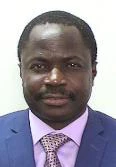 When Benin announced its first case of COVID-19 we had to immediately mobilize technical and financial resources.
When Benin announced its first case of COVID-19 we had to immediately mobilize technical and financial resources.
When the Beninese authorities announced the first case of coronavirus on their territory, I sat down with the entire World Bank team to think about how we could best help the country cope with this crisis. Given the dramatic situation in some developed countries, we feared the worst, despite the fact that Benin’s health system was considered well prepared and more resilient than those of most African countries. We had to act swiftly and well to deal with the emergency and thus limit the spread of a possible epidemic in Benin. Above all, we had to immediately assist the government in mobilizing technical and financial resources to finance the national preparedness and response plan.
The political will was there, and the World Bank management announced that it would spare no effort, particularly financial effort, in the face of this global public health emergency. However, one of the stumbling blocks in our projects has been the difficulty of overcoming bureaucratic delays in the disbursement of funds. In the context of the COVID-19 pandemic, there was a need to be more imaginative and flexible in order to make the necessary resources available quickly.
We realized early on that our colleagues who are responsible for fiduciary matters were part of the solution. The approach we tried was to train the government team in charge of managing COVID-19 pandemic projects in simplified fiduciary measures. By ensuring that everyone involved in the disbursement process was on board, we were able to implement support activities more rapidly.
The importance of ongoing communication
All the teams were committed and ready to adapt, if necessary, to various constraints. A weekly one-hour meeting was held at the highest level between the World Bank team and the Beninese Ministers of Health and Finance to ensure a common understanding of the activities to be financed and to jointly identify the most efficient way of doing so.
The results did not disappoint. In less than five months, Benin has achieved a disbursement rate amounting to more than 90% of the resources made available to respond to the health crisis . Just over $38 million, or CFAF 22 billion, have been disbursed by the World Bank alone to address the health component of the crisis, while other technical and financial partners have provided a total of CFAF 7 billion (about $15 million) in support to Benin.
We have thus helped the country equip 15 border surveillance sites with thermal cameras and build or equip 5 treatment centers. We supported the start-up of 13 laboratories and 89 screening centers through the procurement of materials, consumables, and equipment (including masks and all other protective equipment) . Support was also provided for staffing of the 3 functional treatment centers, 10 laboratories, the emergency medical service (SAMU), and rapid response teams, as well as for psychologists and for health personnel stationed at the port and airport of Cotonou. On July 15, 2020, 9 fully equipped ambulances were delivered to the government of Benin for the safe transport of patients with critical cases of COVID-19. We also financed the national community engagement and communication campaign.
Capitalizing on the experience of responding to the COVID-19 crisis
My thinking about this experience of the coronavirus crisis is that we should try to capitalize on the lessons learned from good practices in procurement, financial management, dialogue with the client, and staff engagement in order to apply these practices in all the projects in our portfolio. There has never been a lack of leadership or commitment on the part of our teams. But our experience in Benin shows that we can optimize our service to the population if we are all on the same page and if all members of the team play their full role in projects in order to speed up disbursement and implement planned actions efficiently .
The fight against the pandemic is not over and our commitment does not end there. We also need to revive economic activity. The future will hinge on the preparation and implementation of transformative projects in areas such as agricultural competitiveness, education, the digital economy, vocational training, and social inclusion. It is important for both current projects and those to be approved in the coming weeks and months to follow the lead of the health projects so that, after all the collective suffering and effort, we can look with pride at the results of our actions, knowing that we were able to roll up our sleeves and triumph over fate.

The Emergency COVID-19 project helped the country equip 15 border surveillance sites with thermal cameras and build or equip 5 treatment centers. We supported the start-up of 13 laboratories and 89 screening centers through the procurement of materials, consumables, and equipment (including masks and all other protective equipment). © World Bank


Join the Conversation